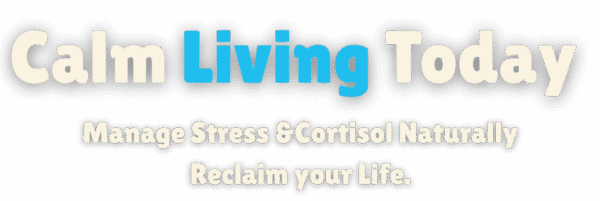The Relationship Between Exercise and Cortisol Levels
I used to hate exercise. I thought it was for people with iron willpower and too much free time. I was always busy, juggling life, stress, and survival, and working out to reduce stress wasn’t even on my radar, I had no idea about the powerful relationship between exercise and cortisol levels, and how exercise can lower cortisol naturally.
Looking back, I now see that my lack of movement was a major contributor to my burnout. What I didn’t understand then is that exercise is one of the most powerful tools to reduce cortisol and reclaim emotional balance.
Exercise isn’t just about weight loss. It’s about managing stress, lowering cortisol levels, and boosting your mental health. Physical activity can regulate your nervous system, improve your sleep, strengthen your immune system, and help you feel like yourself again.
In the depths of burnout, exercise became my medicine. Not punishment. Not performance. Just movement, gentle, healing, and intentional.
I started with a basic set of dumbbells and moved in whatever way felt right. I had no structured plan, but it didn’t matter. The moment I got my blood pumping, I felt it: more energy, deeper sleep, and a quiet surge of confidence returning.
In this article, we’ll explore how you can use exercise to reduce stress and cortisol naturally, and how even small steps can lead to deep transformation — physically, mentally, and emotionally.
In this article, we’ll explore how you can use exercise to reduce stress and cortisol naturally, and how even small steps can lead to deep transformation — physically, mentally, and emotionally.
What Stress Does to the Body
When you’re stressed, your body releases cortisol, a hormone that helps you respond to threats. In short bursts, cortisol is helpful. But when it stays elevated (as with chronic stress), it can:
- Disrupt sleep – This leads to insomnia and other sleep disturbances.
- Increase anxiety – Prolonged stress can worsen anxiety and depression.
- Suppress immunity – I would often become sick, and take a very long time to shake off a flu, elevated stress will impair your body’s ability to heal and repair.
- Raise blood pressure – This constant strain can lead to long term problems like heart disease, heart attack and stroke.
- Lead to weight gain – Chronic stress may lead to elevated levels of cortisol which can promote fat storage and affect the appetite.
And if not kept in check prolonged chronic stress will eventually lead to burnout.
That’s where exercise steps in.
The Relationship Between Stress and Cortisol Levels.
Research shows that regular physical activity helps regulate cortisol in several key ways:
- Burns off excess cortisol created by stress
- Releases endorphins, natural mood elevators
- Improves sleep, which lowers baseline stress levels
- Boosts resilience to future stressors
- Regulates blood sugar, reducing physiological stress
Exercise doesn’t eliminate stress, it helps your body recover from it faster.
Exercise doesn’t eliminate stress, it helps your body recover from it faster.
Best Types of Exercise for Stress Relief
To begin with you might not know where to start, and not everyone is cut out for strength training. The objective here is not to become a world class athlete, but to find some activity that will elevate your heart rate, get you out in the fresh air absorbing vitamin D.
It’s always a good idea to consult your doctor just to be on the safe side.
Not all movement has to be high intensity. The best kind of exercise is the one you enjoy and can sustain for the long term.
1. Walking (especially in nature)
Gentle, grounding, and restorative. Walking in green spaces is shown to lower cortisol and reduce rumination, it’s a great activity for the whole family.
2. Strength Training
Builds physical and emotional resilience. Lifting weights (even light ones) improves mood and confidence.
3. Yoga and Stretching
Combines movement and breath to soothe the nervous system. Especially effective for anxiety and sleep.
4. Dancing
Boosts serotonin, gets you out of your head, and is fun. Even 10 minutes can rewire your mood.
5. HIIT (in small doses)
Can help burn off stress hormones quickly, but should be balanced with recovery if you’re already overwhelmed.
Overtraining
It’s important to keep in mind that exercise can also be overdone. If exercise becomes a chore, you are frequently falling sick, or you are taking a long time to recover between exercise sessions, maybe dial it back a little. If you are strength training 2-3 light sessions a week are more than enough for you to reap the benefits and just a 30 minute walk per day is sufficient. Remember to consult your doctor if you are not feeling well.

The Cortisol Curve: Why Timing Matters
Exercise in the morning can align with your natural cortisol peak and set the tone for the day.
I try to do light exercise in the morning, like a 20 minute walk, followed by stretching. I hit the gym in the afternoon. Intense exercise late at night, however, may keep you wired. Choose calming movement (like stretching or yoga) in the evening if you’re sensitive to overstimulation.
Listen to Your Body — Not Just the Science
When I was recovering from burnout, some days I could barely walk around the block. That was okay. The goal wasn’t to “get fit.” It was to reconnect with my body gently and consistently.
Stress relief is not a sprint. It’s a rhythm. A relationship with your body over time.
Final Thoughts: Move, Don’t Push
If you’re burned out or overwhelmed, think of exercise not as a duty, but as a gift to your nervous system,it’s OK to start slowly, and even miss an exercise session here and there. What’s more important is that you resume, and keep moving forward.
Exercise started out as a burden, now it’s a blessing, it’s not a chore, it’s medicine for my soul.
A walk. A stretch. A few squats. Even dancing in the kitchen with your kids, it all counts.
Stress is inevitable. But movement reminds your body that you are safe, grounded, and in control again.
Happy exercising.
Disclaimer: This content is for informational purposes only and does not substitute professional medical or psychological advice. Please consult a qualified healthcare provider for personalized guidance.




